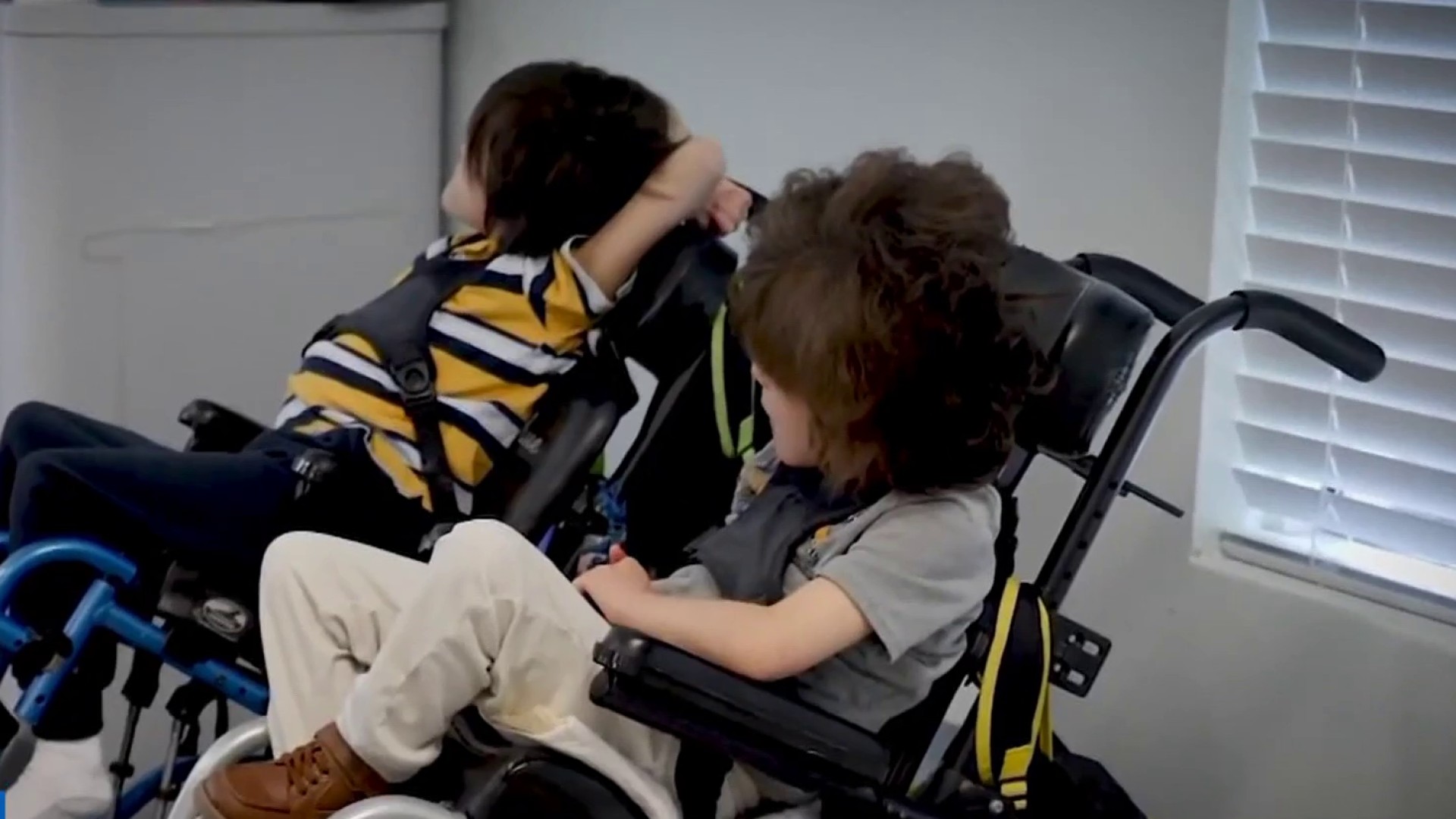‘Their love is here’: South Florida extended care center helps kids with complex medical needs

‘Their love is here’: South Florida extended care center helps kids with complex medical needs
Extended care centers could be in more demand, as a judge orders the state to do more to steer kids with medically complex needs away from nursing homes.
NBC Universal, Inc.
For 20 years, Janet Horn says she and her staff at PediPEC have given kids with complex medical needs a place to address those needs in a nurturing, therapeutic and educational environment.
Its two locations in North Miami and Lauderhill provide up to 12 hours a day of medical day-care for dozens of children who, through age 20, need nursing intervention.
PediPEC and other facilities known as P-PECs — prescribed pediatric extended care centers – may be in more demand, now that a federal judge has ordered the state to do more to transition children out of nursing homes and into the community.
The state is appealing that order, saying it’s impossible to find enough nurses to provide the round-the-clock care those kids would need at home.
But P-PECs can be an option during the day for those children.
Kids like 16-year-old D’mani Fasano.
He was in neo-natal intensive care for five months, diagnosed with cerebral palsy, developmental delays and extreme prematurity, before his mother said she learned P-PECs were an alternative to nursing homes.
Investigations
The NBC 6 Investigators get results
Whether they are at risk for seizures, like D’mani, need to be fed through a tube, or require speech, behavioral or physical therapy, the nurses, EMTs and other staff at PediPEC can accommodate them, said Horn, who is herself a registered nurse.
It also gives their parents or other caregivers some time on their own, “for work, if they don’t have a car, if they’re going to school,” Horn said. “It’s a relief, too, because you know where your child is and they’re in good hands here.”
Thomas said the place is “Amazing. Family oriented. They love on your kids like as if they were their own.”
And, as the judge in the federal case found, medically complex children benefit from being in the community.
“In a nursing home, they’re not as on-hands,” Thomas said. “Here, they’re more on-hands with the kids, individually and together.”
Inger York, a medical foster parent, has three kids, ages 6 to 9, at PediPEC’s North Miami location.
“All my children’s needs are here,” she said. “Their therapy’s here, their education’s here, the nutrition is here, their love is here.”
U.S. District Court Judge Donald Middlebrooks this summer found the state illegally discouraged kids from getting care outside nursing homes, in part by not providing and paying enough for private-duty nurses needed at home.
“I commend that judge because the state is being selfish,” York said.
Attorneys for the state Agency for Healthcare Administration argued in court it was paying nurses all it could and it’s appealing the judge’s order that it steer kids away from nursing homes, claiming it’s impossible to find all the needed nurses.
But the judge noted Florida’s private-duty nursing reimbursement of $29.10 an hour is less than half of that paid by Mississippi and Louisiana.
Horn, the PediPEC administrator, noted the same low reimbursement rates the judge found hinder staffing for private-duty nurses also affect P-PECs, which receive $260 in Medicaid reimbursement for up to 12 hours of care.
“We need to get reimbursed more,” she said, adding it’s difficult to attract enough nurses. “I mean, these are the most special kids in the world. They deserve everything.”
Hard as it may be, Horn said they try to meet the need.
“Well, I’m a nurse. My director of nursing’s a nurse. We’ll do what we can. We’re never going to turn anybody down.”
The state is asking an appeals court to block Judge Middlebrooks’ order from taking effect while its appeal is pending.
